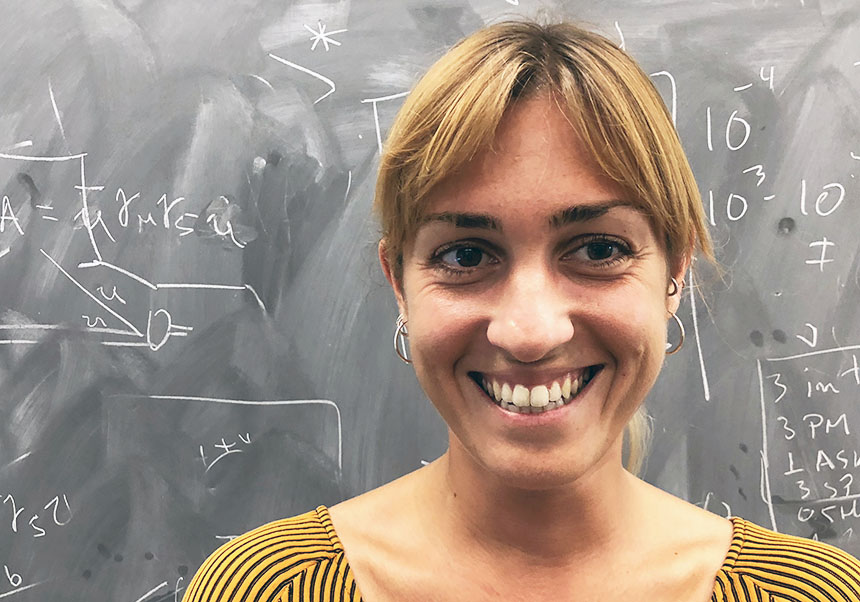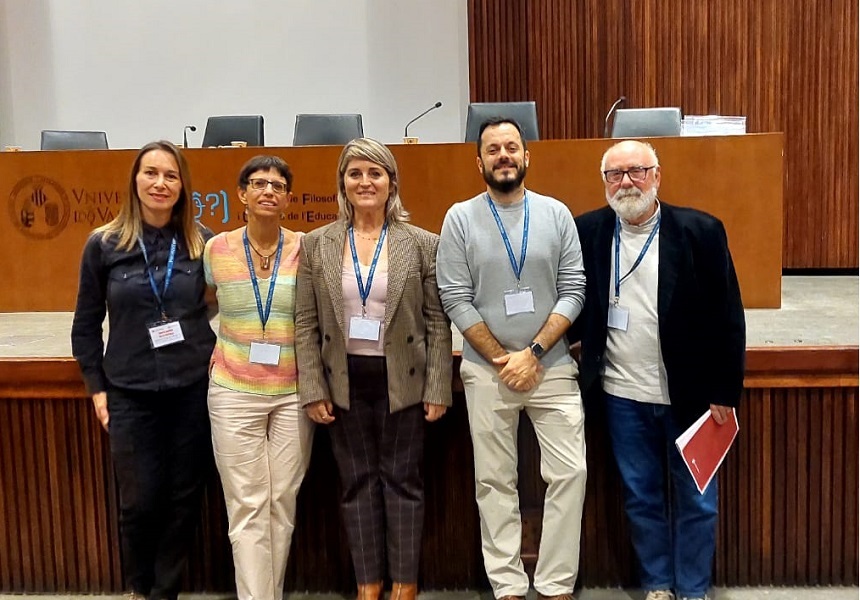The University of Valencia hosts Noemi Rocco's ERC Starting Grant to research neutrino properties
- Marketing and Communication Service
- Olga Denia Moreno
- June 11th, 2025

Italian scientist Noemi Rocco, a researcher at the Fermilab high-energy physics laboratory (USA), will join the University of Valencia (UV) next September to develop her NUQNET project, a study on artificial neural networks designed for neutrino oscillation experiments. This opens a new R&D line at the Institute of Corpuscular Physics (IFIC, UV-CSIC), where Rocco will form her new team thanks to the Starting Grant awarded to her by the European Research Council (ERC) in its 2024 call.
Neutrinos are incredibly light and hard-to-detect fundamental particles. Although for decades they were thought to be irrelevant due to their apparent inactivity, it is now known that they play a crucial role both in theoretical and experimental physics as well as in our understanding of the universe.
The significance of the neutrino oscillation phenomenon lies in the fact that its discovery revolutionised particle physics, opening the door to new physics beyond the Standard Model. Not surprisingly, this milestone earned its discoverers the Nobel Prize in Physics in 2015. Nowadays, the use of advanced artificial intelligence and machine learning techniques in neutrino oscillation experiments is providing clues about some of the greatest mysteries of the universe, such as the origin of mass, dark matter and the cosmic imbalance between matter and antimatter.
This endeavour requires the incorporation of models, tools and techniques that allow anticipating results or behaviours before they are observed experimentally, such as those pursued by the NUQNET (Neutrino Uncertainty Quantification using Neural Networks) project, led by Noemi Rocco and aimed at creating an innovative theoretical framework based on artificial neural networks to quantitatively describe neutrino–nucleus interactions.
In her research, Noemi Rocco brings an interdisciplinary and innovative approach to the field of neutrino physics, combining advanced nuclear theory techniques, modern statistical methods and machine learning. Her work reduces uncertainties in theoretical models, enabling neutrino oscillation experiments to achieve a higher level of accuracy and reliability.
In 2024, this theoretical physicist and researcher at the US high-energy physics laboratory Fermilab was awarded a Starting Grant by the ERC worth €1.5 million. These grants fund researchers with excellent scientific proposals in their first years of independence after completing their PhD. Now, Noemi Rocco and the University of Valencia have signed her incorporation into the Institute of Corpuscular Physics (IFIC, a joint centre of UV and CSIC) to carry out the NUQNET project over five years.
“It is a pleasure to continue attracting talent of proven excellence to the University of Valencia, especially when it comes from these calls, which are the most prestigious at the European level. In fact, for their long-term stability within our research centres, the University gives preferential support to individuals with an ERC grant”, commented the vice-rector for Research, Carlos Hermenegildo.
Noemi Rocco will officially join IFIC next September.
Categories: Ciencias Tecnológicas , Física , Astronomía y Astrofísica















